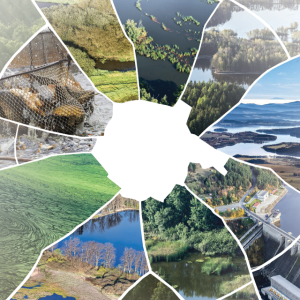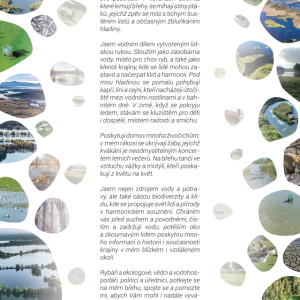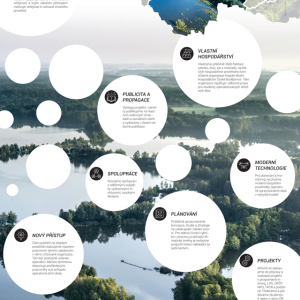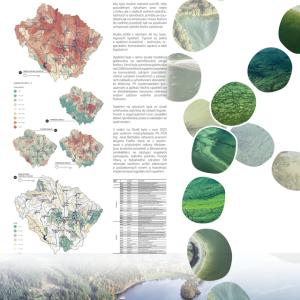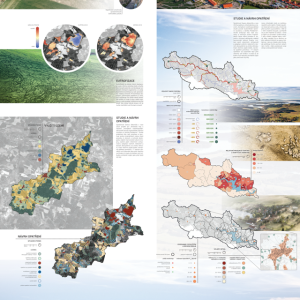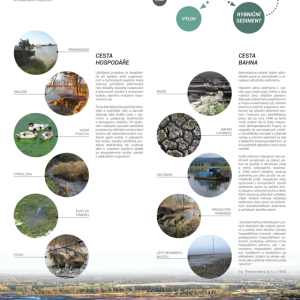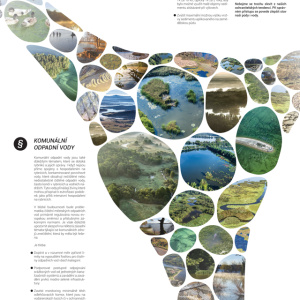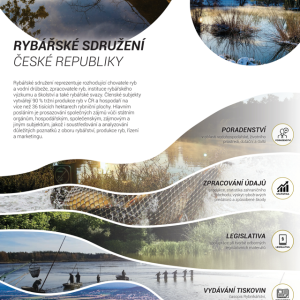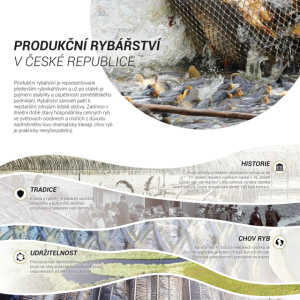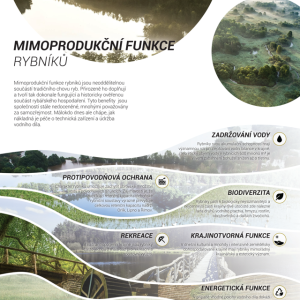Exhibition "Mirrors of the South Bohemian Landscape"
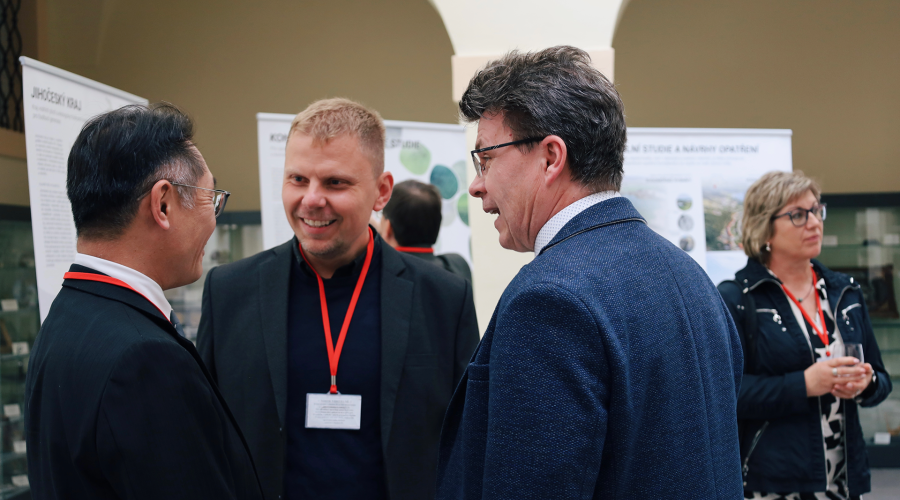
Mirrors of the South Bohemian Landscape: exhibition shows the ways to sustainability of traditional South Bohemian fish farming
Ponds and fishing are an essential part of the South Bohemian landscape and culture. On Wednesday, the Chamber of Deputies hosted the opening of an exhibition under the auspices of South Bohemian MP Jan Bartosek (KDU-ČSL), which was co-organised by the South Bohemian Region, the Fishermen's Association of the Czech Republic, the University of South Bohemia and Sweco. The exhibition is intended not only to show the beauty of South Bohemian fish farming, but also to describe some of the challenges it faces and propose solutions - especially in the area of excess phosphorus in water.
"In 2022, I initiated a working group to focus on legislative changes and the implementation of proposed measures aimed at improving the quality of South Bohemian waters, especially in relation to excess phosphorus. The group brings together all the key players in the area," explains Jan Bartošek, Deputy Speaker of the Chamber of Deputies. "The exhibition we are presenting today is the result of close cooperation between the South Bohemia Region, the University of South Bohemia, the Fishermen's Association of the Czech Republic and Sweco. Its creation was made possible by a working group of experts. Together, this confirms not only our commitment to protecting South Bohemian ponds, but also our efforts to actively contribute to their sustainable development," he adds.
"The South Bohemian Region, with the largest share of water areas in the Czech Republic, boasts rare ecosystems, including ponds, wetlands and peat bogs in Šumava and the Třeboň Basin. The main vision of the region is to preserve its natural wealth and aesthetically valuable landscape, thus maintaining its status as one of the most ecologically valuable regions in the Czech Republic. The region emphasises the protection and restoration of water resources, biodiversity and landscape character with regard to climate change and socio-economic development. It cooperates with experts, municipalities and the public, which it actively motivates to protect the environment," says Zdeněk Klimeš, Head of the Department of Environment, Agriculture and Forestry of the South Bohemian Region.
"Ponds fulfil two basic functions - production and non-production, which are intertwined. The production function of ponds consists in breeding fish for the market, while fish farming is a historically proven and stable way of managing the landscape. The non-productive functions include, among others, water storage and retention, biodiversity support or recreational and landscape roles. However, these socially beneficial services tend to be undervalued and often overlooked, even though pond management is costly. A good fisherman not only produces fish but also looks after the pond ecosystem, thus contributing to the sustainability of the landscape and water resources. Preserving and supporting traditional pond farming is therefore crucial not only for our own food self-sufficiency, but also for maintaining the ecological stability and functionality of the landscape," says Michal Kratochvíl, Director of the Czech Fishermen's Association.
"Ponds are not a problem in our landscape, but part of the solution to the problems we have in the landscape. According to current data, there are approximately 200 million m3 of sediment in Czech and Moravian ponds, which represents one third of their siltation. This fact means a reduction in the water storage capacity of the landscape and also brings additional complications for fish farming. The solution to this problem is complex and very costly. It is not primarily the fault of the fishermen, as most of the sediment comes from the fields. Part of the solution to the phosphorus problem is to promote the recycling of pond sediment, which requires adjusting the legal standards for its use on agricultural land. For effective recycling, some standards will need to be adjusted to allow more frequent application of sediment to fields. Creating an incentive framework for farmers and maintaining soil and water health also play an important role," explains Ján Regenda from the Faculty of Fisheries and Protection of Waters at the University of South Bohemia in České Budějovice.
The "Feasibility Study of Measures to Reduce Phosphorus Inputs to the Orlík Waterworks", prepared by Sweco and AQUATIS (2019-2021) for the South and Central Bohemia Region, identified the main sources of phosphorus and applied 36 model-based measures to more than 2,000 specific sources, including an evaluation of economic efficiency. Key steps include investment-technical and organisational measures, such as upgrading wastewater treatment plants or improving the way ponds are managed, as well as legislative measures aimed at adjusting relevant statutory and sub-statutory standards to improve surface water protection. We try to act as a mediator between the parties and seek a consensual model for a solution," explains Filip Čejka, Senior Consultant at Sweco.
Photo by: Simon Dytrych

